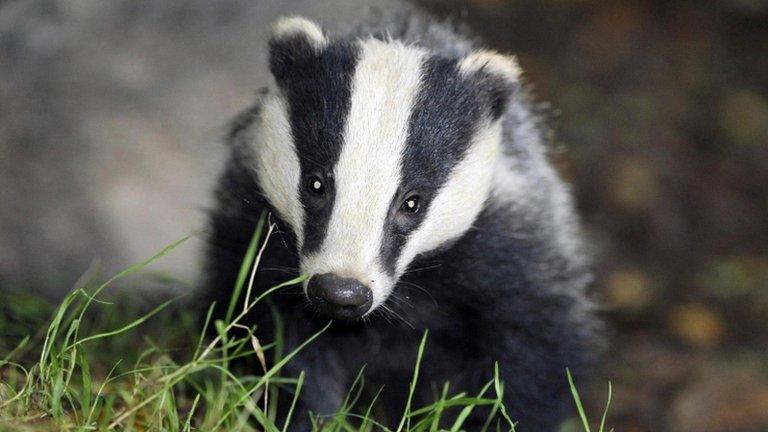Tweedmouth Cemetery: The dilemma of dealing with graveyard badgers
- Published
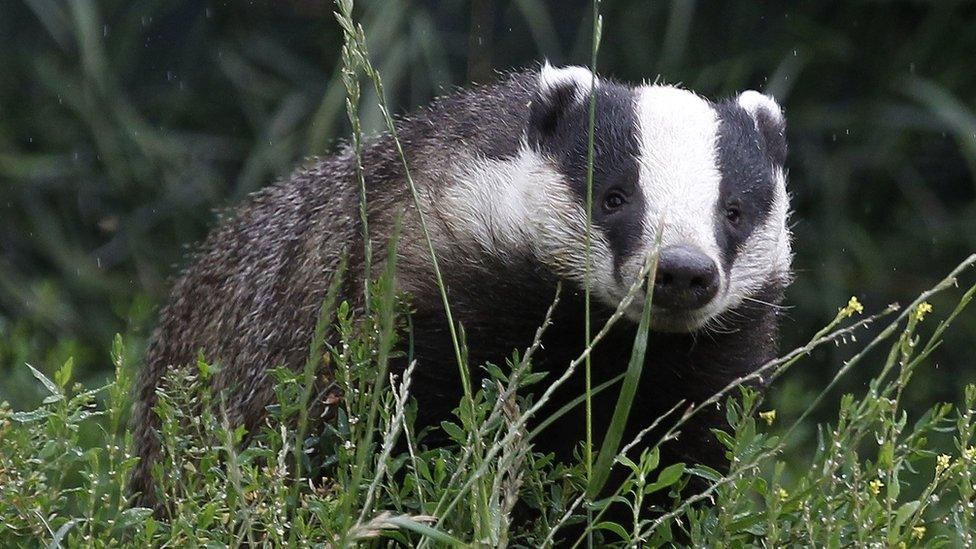
Badgers can be found across the UK and are legally protected
Badgers are posing a problem in a Northumberland cemetery with graves being disturbed by their digging. What can be done to solve the issue?
What are the badgers doing?
Badgers are voracious diggers, from building new underground homes to hunting for food.
The animals have been churning up ground in Berwick's Tweedmouth Cemetery, including disturbing graves, which has prompted fears they could undermine headstones and uncover remains in the older parts of the graveyard.
"There's a big problem with badgers which have been there for months," Georgina Hill, county councillor for Berwick East, told the Local Democracy Reporting Service.
"It went quiet for a while, but then maybe because of the time of year it's been getting worse again.
"People are going to their loved ones' graves and finding they've been dug over, which can obviously be quite upsetting.
"In cases elsewhere they've even dug up bones [and while] that hasn't happened here yet, I'm worried things could get worse - but what can you do when they're so protected?"
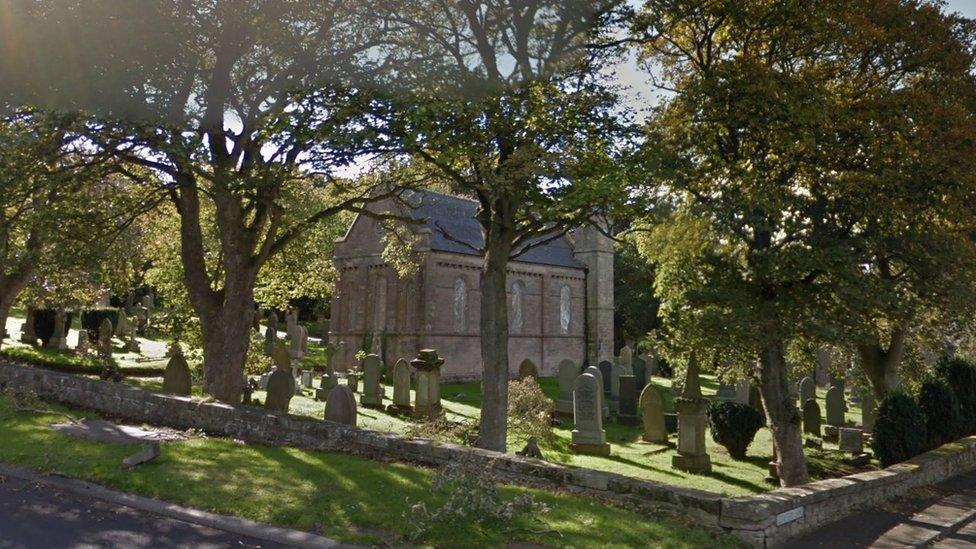
Badgers have been causing damage in Tweedmouth Cemetery for about a year, campaigners said
What can be done?
The simple answer is not much at the moment.
Badgers and their setts are legally protected, meaning it is a criminal offence, external to wilfully kill, injure or take a badger or even attempt to do so, or intentionally or recklessly damage a badger's sett.
There are exceptions, for example to protect "land, crops, poultry or any other form of property" but a licence must be granted by Natural England.
"We are aware that badgers have been present in and around Tweedmouth Cemetery and are monitoring this situation very closely," a Northumberland County Council spokesman said.
"Badgers and their setts are legally protected which makes it very difficult to take preventative action to relocate them or stop them digging in an area.
"We have consulted with ecologists and Natural England about the situation at the cemetery and what actions can be taken to minimise the impact of the badgers' activity.
"At present, due to the legal constraints, we are only able to inspect the cemetery on a daily basis and to identify and repair any damage caused."
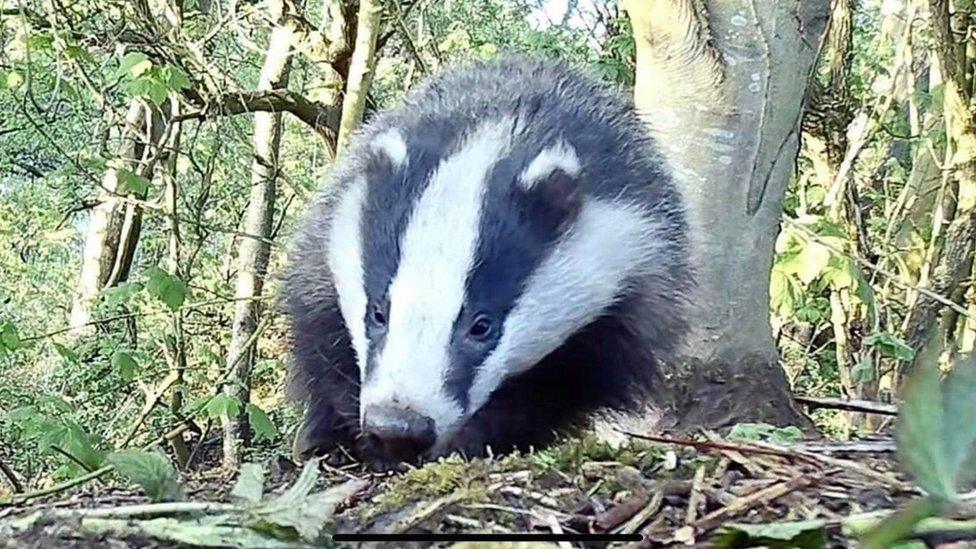
A campaigner took a picture of a badger in Tweedmouth Cemetery
"Whilst it's always unfortunate, and certainly upsetting for the relatives involved, we have to remember badgers are wild animals who have no clue of the inadvertent harm or distress they may be causing," Dawn Varley of The Badger Trust said.
She said badgers are "increasingly finding their habitat taken away" and could "literally be being pushed out of their traditional territory by development and building nearby".
Ms Varley also said it could be a "temporary problem" with "badgers looking for food, or venturing further for one reason or another".
She said the Badger Trust has more than 50 volunteer groups across the country who can be contacted for help or advice.
What must not be done?
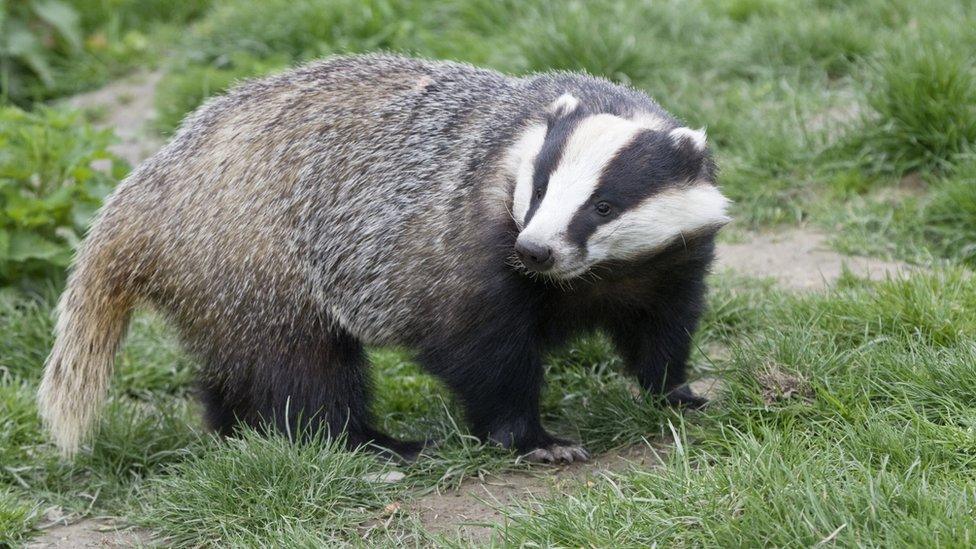
It is illegal to kill or disturb badgers
People should not take matters into their own hands no matter how upsetting the badgers' actions are, both the council and Northumberland Wildlife Trust (NWT) have said.
Campaigners, who wished to remain anonymous, said they feared people could take it upon themselves to get rid of the animals, either through poison or traps.
But anyone caught doing so, external without the relevant licence could be jailed for up to a year and/or be fined up to £40,000.
"Badgers are heavily protected by The Protection of Badgers Act 1992, and any well-meaning intervention by anybody would be equally as illegal as setting traps or putting out poisoned bait," the NWT said.
"If anybody suspects any of those things are happening we would urge them to report it to the police on the non-emergency number."
Northumberland Council said it "fully understand people's concerns" and the "distress that this might cause to families who have loved ones buried there".
But, a spokesman warned, "we would urge people not to take matters into their own hands".
"Please be assured that we are monitoring the situation very closely, and taking appropriate action," he said.
How do badgers live?
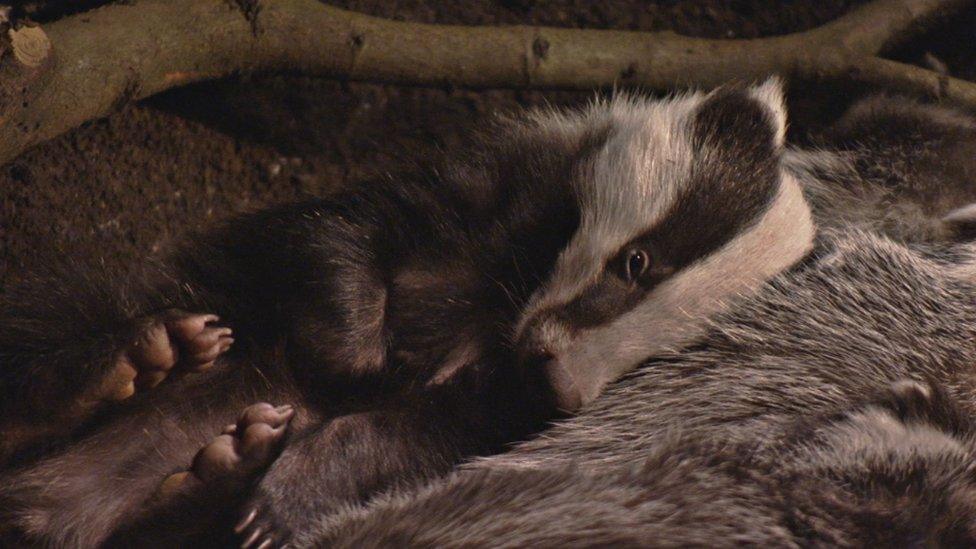
Badgers live in underground networks of tunnels and burrows in woodland
Badgers live in setts, an underground network of tunnels and burrows they dig with their sharp claws, according to the Woodland Trust, external.
They typically live in groups of between four and seven with cubs arriving in January or February.
They build their homes in woodlands and will forage at night for food.
About 80% of their diet is earthworms, which a badger can consume hundreds of in one night, but they will also eat other invertebrates such as slugs as well small mammals including voles or rabbits.
They also eat fruit, such as apples, plums and elderberries, and are the main predator of hedgehogs in the UK.

Follow BBC North East & Cumbria on Twitter, external, Facebook, external and Instagram, external. Send your story ideas to northeastandcumbria@bbc.co.uk, external.
Related topics
- Published30 October 2012
